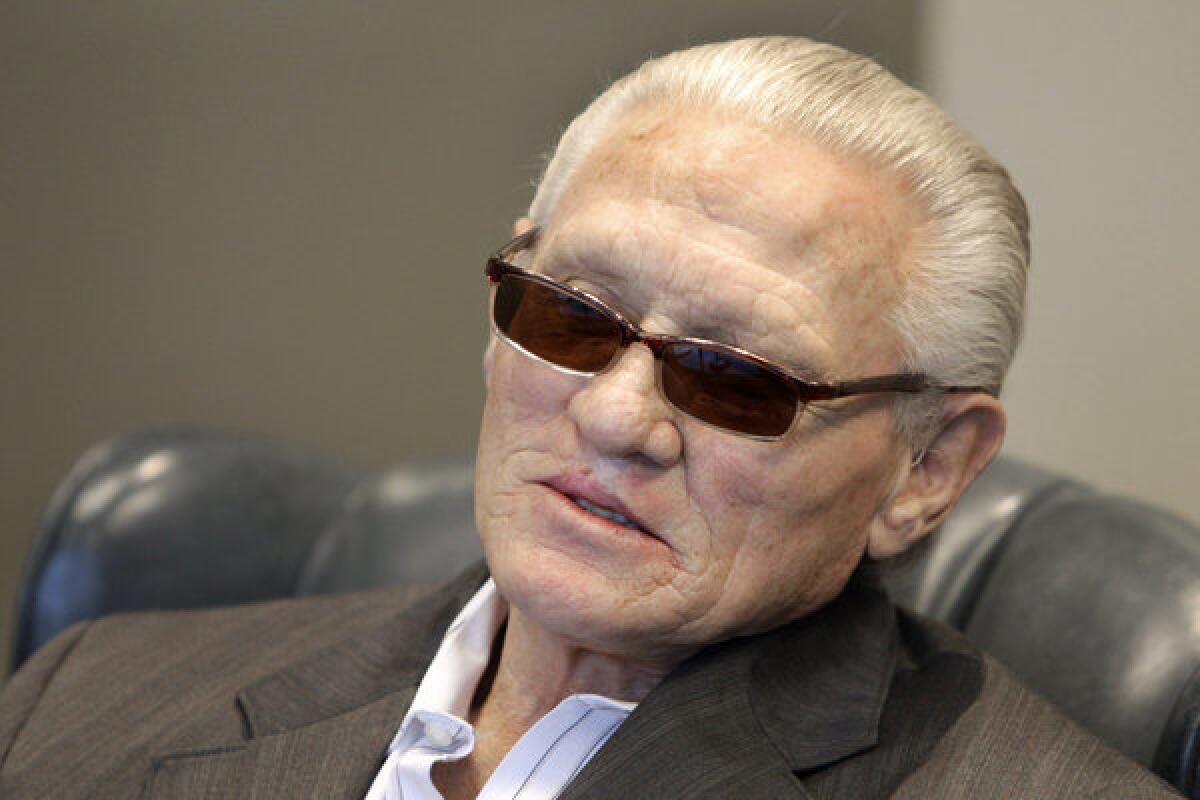Court to Texas: Pay $2 million to man imprisoned for 26 years

- Share via
HOUSTON -- The Texas Supreme Court has ordered the Lone Star State to pay more than $2 million to a former inmate who spent 26 years in prison for murder, a ruling that could set a precedent for compensating other prisoners whose convictions are overturned.
Billy Frederick Allen, now in his 60s, was convicted of two 1983 Dallas-area murders. Unlike other inmates freed after DNA evidence proved their innocence, Allen was freed in 2009 after a court found problems with witness testimony and his trial attorneys’ representation. Allen sued the state for compensation for wrongful imprisonment.
Allen’s attorney said the Supreme Court ruling may prove key to developing standards for when the state must compensate former prisoners.
“There are many cases where people are struggling and they don’t have DNA, but they now have hope,” Allen’s attorney, Kris Moore of McKinney, Texas, told The Times. “The implications of this for the Texas justice system are probably larger than people realize.”
He said the ruling may make it easier for inmates such as Richard Miles of Dallas -- who served 14 years for crimes he didn’t commit, then spent two years awaiting a court ruling that finally came in February -- to be compensated more quickly.
But he said it’s not clear what bearing Allen’s case may have on other ongoing high-profile exoneration battles. In one such case, Kerry Max Cook has written a book and attracted celebrity supporters in his fight to prove his innocence and receive compensation for serving 22 years on Texas’ death row for an East Texas murder he says he never committed.
Texas’ compensation law is the most generous in the U.S., according to officials at the New York-based Innocence Project. Freed inmates declared innocent by a judge, prosecutor or a governor’s pardon can collect $80,000 for every year of imprisonment, along with an annuity and medical and education benefits.
Dallas has become a lightning rod in the national debate over exonerations and capital punishment, with the most exonerations in Texas and the state’s first African American district attorney who has championed the cause of exonerees.
But in Allen’s case, Texas Comptroller Susan Combs resisted paying, arguing that unlike other wrongfully convicted inmates, Allen did not have newly tested DNA or other evidence to prove his innocence.
On Friday, a spokesman for Combs’ office released a statement to The Times saying the state did not plan to appeal and was already processing Allen’s payment.
“Now that we have helpful guidance from the Supreme Court, we have immediately started the process of paying Billy Allen approximately $2 million for wrongful-imprisonment compensation,” spokesman R.J. DeSilva said in the statement. “The court’s decision will also help us pay any other exonerees with similar circumstances to Mr. Allen.”
DeSilva noted that Texas has already paid 80 exonerees $49.5 million in wrongful-imprisonment compensation.
The state Supreme Court ruled Allen had a legitimate claim, despite the fact that his innocence had not been established through DNA.
“While unlikely, it is conceivable that the state could compensate someone who is later found guilty of the crime,” the court said in the ruling. However, the court said, that should not be grounds for limiting compensation to some wrongfully convicted inmates and not others.
ALSO:
Mary Kennedy suicide: Family criticizes media coverage
Western wildfires: Colorado declares emergency in Hewlett blaze
Trayvon Martin and George Zimmerman: A portrait of the Retreat
More to Read
Sign up for Essential California
The most important California stories and recommendations in your inbox every morning.
You may occasionally receive promotional content from the Los Angeles Times.











